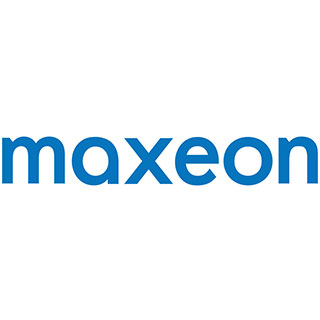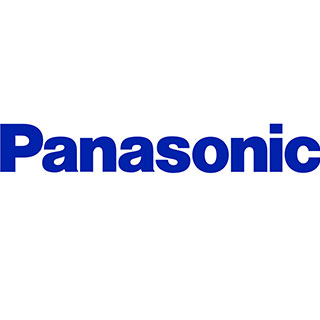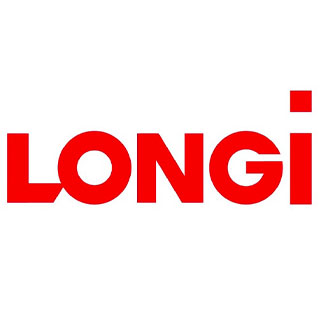Best cheap solar panels
Go green on a budget

Going solar is often fairly expensive, which can be intimidating to those buying panels for the first time. Luckily, there are ways to save, like taking advantage of solar incentives and tax credits — and working with an affordable, trusted solar company. You can even finance solar panels, which might be ideal for those on a tight budget.
Another way to save is to purchase budget-friendly panels. Beware, though: Sometimes the quality matches the relatively low price. To help, we’ve looked around for the best affordable — and high-quality — solar panels available today. To ensure our information is accurate, we've based our research on data from industry experts and manufacturers.
Our picks
Compare our top 3 cheap solar panel picks
We analyzed cost as well as panel efficiency, availability, performance and warranty options to determine which panels provide the best bang for your buck.
|
|
Maxeon is a spinoff of SunPower, a company that consistently ranks well in independent solar panel manufacturing tests. SunPower was the first company to produce 400-watt residential solar panels. And its products, which are available nationwide, are competitively priced.
The Maxeon X-Series panels are a great option if you have a small roof. The panels start producing 45% more energy in the first year than conventional panels; then production increases to 60% more energy over the first 25 years. The anti-reflective glass on the X-Series panels reduces glare, and the back-contact conductivity gives the panels a smooth finish with none of the gridlines you see on other panels.
What we like
What to consider
What reviewers say
|
|
Panasonic is a trusted tech brand known for its televisions, but its solar panels are also dependable and affordable. The EverVolt HK Black Series has an efficiency of 21.6% to 22.2% (depending on the panel's wattage) and a guaranteed power output of at least 92% after 25 years of use. In addition to performance, the 25-year warranty covers labor, product and parts.
What we like
What to consider
What reviewers say
|
|
LONGi was founded in 2000, and its Hi-MO 4m panels are on par with our other top picks. They have a 21.2% efficiency, as verified by third-party quality testers, according to the company. The panels come in three sizes, so you can pick the size that best fits the needs of your roof.
What we like
What to consider
What reviewers say
Where to get our top picks for high-efficiency panels
Typically, solar manufacturers sell systems through partner companies. If you’re interested in any of our three top picks, you might consider working with SunPower, Complete Solar, Sunlux or Solar Optimum.
|
|
|
What’s the cheapest type of solar panel?
There are three main types of solar panel materials: monocrystalline, polycrystalline and thin-film panels.
- Monocrystalline: The solar cells in this type of panel consist of a single silicon source. The purity of the silicon makes these panels more efficient. Monocrystalline panels work better than other panel types in high heat and shade, but they’re also more expensive because they’re harder to make.
- Polycrystalline: Solar cells in this type of panel consist of different kinds of silicon mixed together, so they’re a bit less efficient. Polycrystalline panels are easier to make, though, so they’re more affordable than monocrystalline panels. Out of the three types, polycrystalline is the most balanced in terms of affordability and efficiency.
- Thin-film panels: These panels are the cheapest because they consist of thin pieces of conductive material on a backing plate of plastic or glass. With the lower prices comes lower efficiency, however.
It may be tempting to go with thin-film panels because they are the most affordable, but monocrystalline or polycrystalline panels are typically better for residential solar energy systems. According to Andrew Meyer, a climate tech entrepreneur, CEO of Arbor and co-founder of Swell Energy, “[Monocrystalline and polycrystalline] are more conventional and can yield up to 25% efficiency, whereas thin-film panels yield between 7% and 18% efficiency.”
If you do want to proceed with thin-film panels, he said, be sure to save them for small projects like solar-powered sheds or pool houses, rather than a large roof on your house. You could also use them on an RV, bus or boat rooftop.
How to choose affordable solar panels
Choosing affordable solar panels comes down to efficiency, wattage, warranties, guarantees and the material of the panels. Be sure to check out solar company reviews and ask family and friends who’ve gone solar for recommendations to make the most informed decision.
Efficiency
One of the most common terms you’ll see when shopping for solar panels is efficiency. An efficiency rating is how well the panel can turn sunlight into usable energy (listed as a percentage). The higher the percentage, the better the panel at converting sunlight into electricity. Most of the top solar brands have an efficiency of 20% to 25%.
Wattage
Most solar panels on the market range in wattage from 250 to 400 watts. The higher the wattage, the higher the energy output. If you get a solar panel with high wattage but a low efficiency rating, it won’t produce the same output as another panel with the same wattage and higher efficiency.
Another thing to remember is that higher-wattage panels are often bigger and pricier, so try to find a panel with the highest wattage that fits your price range and space needs.
Warranties/guarantees
Because solar panels should last for decades, it’s important to only purchase from companies that back up their product with a warranty that covers decades of use. Many top companies cover their panels for 20 to 25 years.
Solar panels can become less efficient over time, so be sure to look for warranties and guarantees that cover the performance of the panel and the equipment.
Materials
What your solar panel is made of matters, and not all are created from the same materials. First, look for panels with cells made from silicon. It’s the most durable and affordable material. These panels can last more than 25 years and still produce over 80% of what they originally produced in their early years.
Next, find the hail, snow (often listed as snow load), temperature and wind (often listed as wind load) ratings. These will tell you the durability of the materials in the panel.
FAQ
What rebates and tax credits are available for solar panel installations?
You can take advantage of several rebates and tax credits when upgrading your home to use solar energy. For example, when you file your taxes, you can get a federal residential solar energy credit that gives you a percentage of the cost of your solar energy system back as a tax credit. You can also get a rebate in some states for your solar energy system. Some electric companies also offer rebates and payments to customers with solar energy systems.
What’s the cheapest way to install solar panels?
The most affordable way to transition your home to solar energy is to purchase a solar DIY kit and install it yourself.
How can you pay for solar panels?
Many solar companies have payment plans for solar panel systems. You can also use government loan programs to pay for your solar panels.
If solar company financing or government loans aren’t an option, you may consider a solar power purchase agreement (PPA). In this agreement, the system is free, but you don’t own the solar panels. Instead, you get low-cost electricity while the owner receives a tax credit or other profits from the solar energy system.
Can I install solar panels myself?
You can install solar panels yourself. Look for DIY kits to make the process easier.
Article sources
- U.S. Department of Energy, " Homeowner’s Guide to Going Solar ." Accessed Feb. 3, 2023.
- U.S. Department of Energy, “ Solar Photovoltaic Cell Basics .” Accessed Feb. 4, 2023.
You’re signed up
We’ll start sending you the news you need delivered straight to you. We value your privacy. Unsubscribe easily.






